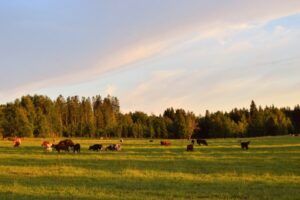Environmental modifications such as climate change and globalisation are increasing the risk of infectious animal diseases emerging in new locations with greater frequency, and this is particularly relevant with vector borne diseases.
Specific challenge
The infectious animal diseases have a major impact not only on livestock production and related economy but also on global food security and trade. Some of these emerging diseases also threaten human health (zoonoses). The African continent suffers from a number of vector-borne diseases, sometimes with heavy burden, although it is not always fully ascertained. A number of these diseases occur or do present a risk of introduction and spread also in Europe. The complex transmission cycles can make it difficult to assess risk and organise control. We need to get further knowledge on these diseases, not least on their vectors, in order to improve their control, and assess their potential spread all over Europe.
Scope
C.[2020]: Vector-borne diseases in Africa (RIA)
The proposals should aim to develop knowledge on selected vector-borne diseases affecting terrestrial livestock, whether they also affect humans or not. The proposals may address one or more diseases. Priority should be given to diseases with either a serious impact in Africa, or a risk of spread to Europe with significant consequences, or both. Activities should cover the ecology of the pathogens and vectors, and epidemiological features, including the risk of short and long distance transmission and the capacity for the disease to establish in and spread to new areas, with potentially features different from the original area. The burden of disease in animals (and humans if relevant), and the socio-economic impact should be further assessed as appropriate. Systems and/or networks to improve epidemiological surveillance strategies in domestic and wild species should be developed/strengthened. Activities should also address detection and control tools, including prevention, monitoring, diagnostics and:
- Vector competence studies including exploration of vector-pathogen interactions simulating field conditions.
- Map, explore and predict vector densities and spread and the role of the vector in spreading the disease.
- Study the relationship between immunity and pathogen spread including the role of pre-existing immunity and the role of vaccinations.
- Exploration of livestock species, both African and European breed, for susceptibility to the diseases.
- New diagnostic methods for pathogen or specific antibody detection.
Projects should include capacity-building and training activities. The projects should build on results and experiences from related EU projects and existing networks in this field.
The Commission considers that proposals requesting a contribution from the EU of up to EUR 6 million for sub-topic C would allow this specific challenge to be addressed properly. Nonetheless, this does not preclude submission and selection of proposals requesting other amounts.
Expected impact
In the short to medium term:
- Funded activities will contribute to better prevention and minimisation and mitigation of selected vector-borne diseases of livestock (sub-topic C). More specifically they will:
- enable strengthened surveillance systems/networks and allow an improved view on occurrence and burden of selected disease(s);
- improve assessment of the risks of introduction and spread among livestock and humans of the selected disease(s) in new areas;
- provide improved tools for rapid detection of selected pathogens, preferably on-site;
- improve prevention and control of the selected disease(s);
- enable a more focused targeting of resources for controlling the selected disease(s);
Deadline
22 January 2020 at 17:00 Brussels time







Leave a Reply